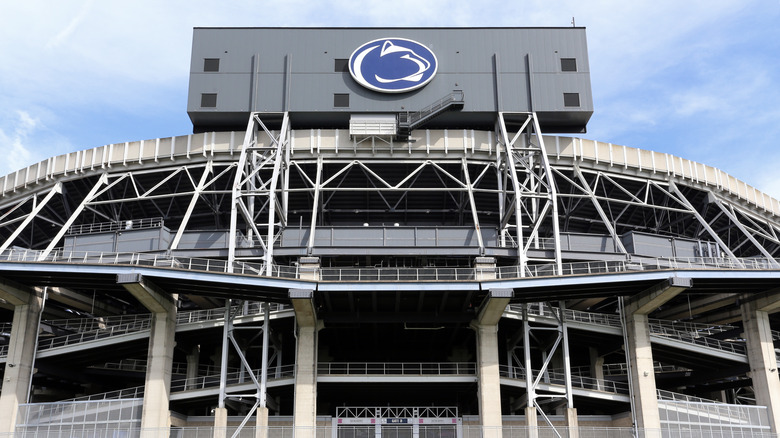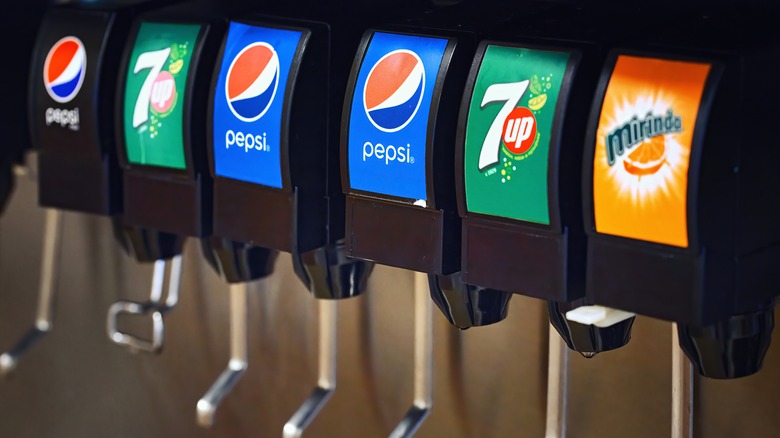The Reason Penn State Hasn't Served Coca-Cola In Decades
Walk around the Pennsylvania State University campus in the central region of the state and you'll be hard-pressed to find one drink in particular: a fresh-from-the-soda-fountain Coca-Cola. Throughout campus, Penn State has exclusively offered its students and visitors Pepsi products since 1992 and, as of an April 2023 press release, the university doesn't plan on changing this anytime soon — but why?
Leadership offered a vague statement noting that the Pepsi brand more closely "aligns with university values," when compared to other brands. Of course, the broad range of the Pepsi product line was additionally a factor to consider, the university noted, when choosing a drinks supplier, saying that the other supplier that it was considering working with offered about half as many products as Pepsi. The new, 2023, 10-year contract between Penn State and Pepsi will not just benefit students when it comes to quenching their thirsts, though. Revenue from the continuing contracts between the two organizations, since they started in the 1990s, has helped fund an array of construction projects, including major undertakings like the building of an arena and concert venue.
Is Penn State on to something?
It's no secret that Pepsi and Coke have been rivals for decades. However, Coca-Cola comes out on top as the best-selling, fan-favorite soda in the United States. That said, even though Coca-Cola can be found in more fridges and at more restaurant chains, it might not truly be the superior soda. Has Penn State caught on?
According to a study conducted at Baylor College of Medicine, as reported by Slate, when serving both Coke and Pepsi to participants in a blind taste test, more participants preferred the taste of Pepsi. In a non-blind taste test, though, participants chose Coke. During the study, participants' brain activity was monitored with some interesting results. Researchers suggested that Coke's pervasive marketing tactics had cemented themselves so thoroughly in consumers' brains that consumers automatically went for Coke in the non-blind taste tests, even when their brain activity indicated that Pepsi offered the better flavor. Blind or non-blind, the brain always preferred the taste of Pepsi, but other portions of the brain recognized Coke as the "right" answer.
So, the next time you find yourself near Penn State's campus — or anywhere that serves exclusively Pepsi — maybe just sit back and enjoy your soft drink, regardless of whether or not you might normally request Coke. Your brain might thank you later.

